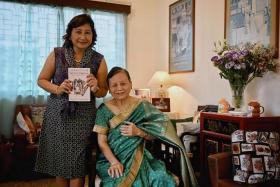Uncommon for birth parents to object and contest their child's adoption
It is uncommon for birth parents to object to their child being adopted by another family during legal proceedings, adoption figures from the past three years show.
The issue came up as a new adoption Bill clarifies the proposed thresholds and circumstances, and specifies more grounds on when the court may dispense with the need for the birth parents' consent to the adoption.
Under the proposed Adoption of Children Act 2022 introduced in Parliament on Monday (April 4), they will include cases where the birth parents have intentionally caused grievous hurt to the child or have failed to provide suitable care over a prolonged period.
These children would have been under the state's care, which is foster care or living in a children's home, for many years. Foster care is a temporary care arrangement.
This is because their birth parents continue to be unfit or unwilling to care for them despite getting support from professionals and the community to do so, the Ministry of Social and Family Development (MSF) said.
A MSF spokesman said adoption would give these children the "best opportunity to grow up in a safe, stable and loving family".
An average of seven adoptions, out of about 400, a year in the past three years were contested, the MSF spokesman told The Straits Times. A contested adoption is when the birth parents or someone relevant to the case objects to the adoption during legal proceedings.
Of the contested adoptions, four cases involved children under the state's care.
The MSF spokesman said: "We understand it is not easy for parents to sever their ties with and legal rights over the child."
The spokesman said the MSF makes every effort to keep or reunite the child with the birth family, for example, if the child was removed from the birth parents as they had abused him.
The birth parents' consent for the child to be adopted would be sought only after all efforts to keep or reunite the child with the birth family are exhausted.
The Guardian-in-Adoption, who safeguards the child's interest, will do the necessary investigations and consider if the birth parents are able to care for their child in the long term and if adoption would be beneficial for the child.
If the Guardian-in-Adoption concludes that the conditions for dispensation are met, it will recommend that the court dispenses with the birth parents' consent, said the MSF spokesman.
These conditions include the birth parent ill-treating or knowingly allowed another person to ill-treat the child and are unwilling or unable to take reasonable steps, such as being responsive to the help services given, to resolve the issue after a specified period of time.
In the past three years, the MSF received fewer than 10 applications a year to adopt a child under the State's care.
Social workers interviewed say there are children who have been under the state's care for more than 10 years but their birth parents refuse to agree to the child being adopted.
Mr Justin Mui, executive director of Lutheran Community Care Services, noted that the child's views on the adoption are also considered.
Hence, the proposed new law gives them an earlier opportunity to be part of a stable and permanent adoptive family, instead of being stuck in the State's care for too many years if their birth parents object to the adoption.
Get The New Paper on your phone with the free TNP app. Download from the Apple App Store or Google Play Store now



